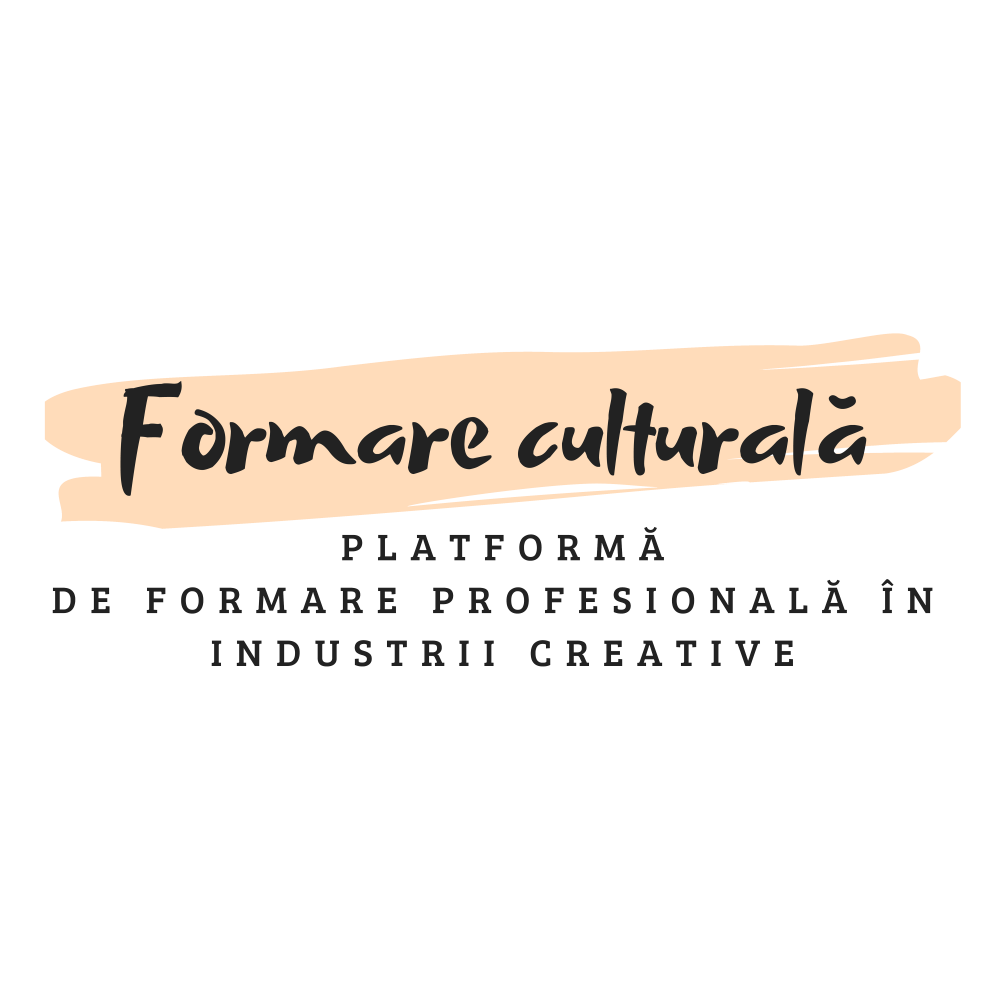This professional knowledge transfer cultural debate, part of the ”Beyond creation” project produced by Formare Culturala platform, features subjects like the European Union’s AI Act and its implications for the cultural and creative sectors.
The experts: Marco Fiore (Policy Officer at Michael Culture Association), Luiza Moroz (Policy Adviser at Culture Action Europe), and host Oana Nasui (cultural researcher)
EU AI Act and Copyright Challenges
The discussion begins with an exploration of how AI disrupts cultural and creative work, particularly regarding copyright-related obligations. Luiza explains that the AI Act, adopted by the European Union, provides obligations for AI providers and developers to make artificial intelligence safer and more transparent. However, she identifies two major challenges: the future of copyright and the transformation of the creative process itself.
Input and Output Concerns
The discussion highlights critical issues on both sides of AI development. On the input side, cultural data including photos, images, music, and text are being used for AI training without authorization or remuneration to creators. On the output side, there’s a flood of AI-generated content appearing on platforms like Amazon, creating works in the style of living authors while evading copyright infringement claims since style isn’t protected by copyright law.
Community Engagement and Code of Practice
Marco describes their organizations’ involvement in creating a code of conduct as mandated by the AI Act. This involved establishing an action group with around 90 members to collaborate on digital and AI topics. The process included surveys, working groups, and official discussions with the AI office, though they faced challenges with the scale of participation (over 1,000 people in initial meetings) and the effectiveness of collaborative processes.
Oana observes that with 1,000 opinions, pre-preparation and clear filters become essential to manage such gross information effectively.
Systemic Issues and Transparency
The discussion reveals significant concerns about the final code of practice, which both speakers found inadequate. They criticize its non-legally binding nature, its watering down of existing legal obligations, and its failure to provide real copyright safeguards. Specific issues include overly narrow opt-out mechanisms, encouraging rather than requiring compliance, and leaving complaint processes at the discretion of tech companies.
Cultural Bias and Data Ethics
The discussion explores how AI systems perpetuate cultural biases through their training data.
Marco explains that AI systems act as “statistical borrowers” that recreate and reinforce discriminatory patterns found in their training datasets. They discuss how data labeling reflects cultural power structures and how platforms like Amazon Mechanical Turk exploit low-paid workers globally to process sensitive content for AI training.
Resistance and Alternative Solutions
Both experts outline various forms of resistance and alternative approaches. These include creative protests like the UK musicians’ silent album project, technical solutions like Nightshade and Glaze (AI data poisoning tools), and advocacy for increased public funding for culture. They emphasize the need for new economic models that ensure fair remuneration for creators.
Cooperation and Future Vision
The discussion concludes with a discussion about the need for genuine cooperation between the tech and cultural sectors, but only on equal footing. They advocate for cultural sector representation in AI governance structures and propose community-curated datasets that would be more culturally sensitive and democratic.
Philosophical Reflections
The experts challenge the common perception of AI as merely a “tool,” arguing instead that it should be understood as an environment or space that fundamentally disrupts cognitive skills, creativity, education, and work patterns. They emphasize the importance of preserving human creativity’s capacity for struggle, failure, and the unexpected as competitive advantages over AI’s optimization-focused approach.
Oana notes how AI fundamentally reverses traditional creative processes and questioning whether people truly need “personalized” content when great art has always been universal, speaking to millions despite individual differences.
The experts emphasize the importance of preserving human creativity’s capacity for struggle, failure, and the unexpected as competitive advantages over AI’s optimization-focused approach.
Cultural and Democratic Implications
The discussion ultimately frames AI development as a cultural and democratic issue, highlighting how technology reflects and shapes cultural values. The experts argue for maintaining cultural diversity and democratic participation in technological development, warning against the flattening of complex cultural discussions into purely technical or capitalistic frameworks.
///
Luiza Moroz is a cultural policy analyst, Policy Adviser at Culture Action Europe.
Marco Fiore is a specialist in advocacy, Policy Officer at Michael Culture Association, member of the European Commission’s expert group on cultural heritage.
Oana Nasui is cultural manager and cultural researcher.
The discussion took place in one of the locations of Beyond Many 2025 conference, organised by Culture Action Europe.
The project ”Beyond creation” is co-financed by the Administration of the National Cultural Fund


